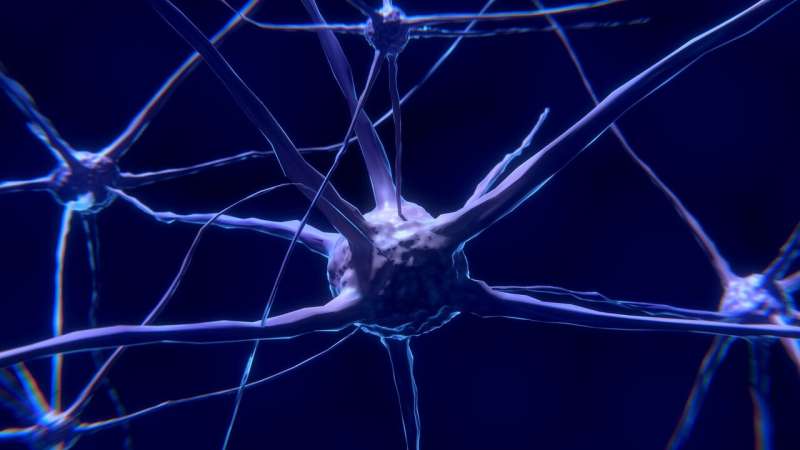This article has been reviewed according to Science X's editorial process and policies. Editors have highlighted the following attributes while ensuring the content's credibility:
fact-checked
peer-reviewed publication
trusted source
proofread
Blocking key protein may halt progression of Alzheimer's disease

Researchers at the University of Colorado Anschutz Medical Campus have found that inhibiting a key protein can stop the destruction of synapses and dendritic spines commonly seen in Alzheimer's disease.
The study, whose first author is Tyler Martinez, a student in the Pharmacology and Molecular Medicine Ph.D. program at the University of Colorado School of Medicine, was published recently in the journal eNeuro.
The researchers, using rodent neurons, found that targeting a protein called Mdm2 with an experimental cancer drug known as nutlin stopped neurotoxic amyloid-β peptides that accumulate in Alzheimer's disease (AD) from overly pruning synapses.
"Cognitive impairments associated with AD correlate with dendritic spine and excitatory synapse loss, particularly within the hippocampus," said the study's senior author Professor Mark Dell'Acqua, Ph.D., vice-chair of the Department of Pharmacology at the CU School of Medicine.
Dell'Acqua said trimming excess dendritic spine synapses is normal in the post-natal brain but can be abnormally accelerated in AD, causing loss of memory and learning.
"When this protein Mdm2 is turned on inappropriately, it leads to pruning of the synapses when amyloid-β is present," he said. Amyloid-β is the main component of amyloid plaques found in the brain of those with AD. "When we used the drug that inhibits Mdm2 on the neurons it completely blocked dendritic spine loss triggered by amyloid-β. So inhibiting this protein is clearly working."
Dendritic spines protrude from dendrites, a component of neurons, and receive synaptic signals that are critical in learning and memory.
Dell'Acqua, director of the Neurotechnology Center at the CU School of Medicine, noted that much of the research into AD therapies tends to focus on eradicating amyloid plaques in the brain.
"There are questions if anti-amyloid therapy is the be all and end all of AD therapy," he said. "Even if you could tolerate the high cost, the effectiveness is questionable. We are saying that it may also be possible to intervene in the process by blocking some of the impacts of amyloid-β. And you could intervene by targeting Mdm2."
The next step is determining whether they can block AD progression in an animal model. If so, human trials could happen in the future. Drugs that target Mdm2 are already developed and in clinical trials for cancer but still need FDA approval.
"This is an encouraging first step that gives us a new lead to pursue," Dell'Acqua said.
More information: Tyler P. Martinez et al, Amyloid-β-induced dendritic spine elimination requires Ca2+-permeable AMPA receptors, AKAP-Calcineurin-NFAT signaling, and the NFAT target gene Mdm2, eNeuro (2024). DOI: 10.1523/ENEURO.0175-23.2024





















